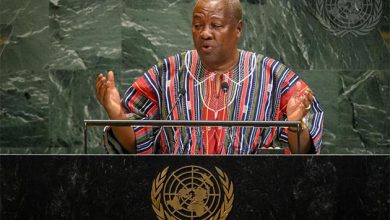EWURA sparks clean energy boom in Tanzania

DAR ES SALAAM: AT the centre of Tanzania’s accelerating shift toward sustainable power, one institution stands out as the quiet engine behind the momentum: the Energy and Water Utilities Regulatory Authority (EWURA).
Through progressive policy, proactive licensing, and strong regulatory oversight, EWURA has catalyzed a new wave of clean energy initiatives-unleashing private sector innovation, expanding electricity access, and laying the groundwork for a national transformation in how Tanzanians power their homes, businesses, and future.
Tanzania, once heavily reliant on a centralised, statedominated electricity system, is rapidly shifting toward a more inclusive, sustainable, and investor-friendly model—one where clean energy and private sector innovation are beginning to define the path forward.
The 2023/24 financial year was a landmark period for Tanzania’s electricity sector.
While the country celebrated major infrastructure milestones, it also recorded significant progress in embracing renewable energy, attracting independent power producers, and promoting alternative cooking fuels.
The transformation was evident in the performance reports released by EWURA, the national regulator, in April 2025.
From the corridors of the Ministry of Energy to the growing network of mini-grids in rural regions, one message resonated: the future of power in Tanzania is cleaner, more diversified, and increasingly decentralized.
At the heart of this shift is the growing role of the private sector.
Once confined to the periphery, private energy players are now central to Tanzania’s energy ambitions.
According to the Electricity Sub-Sector Regulatory Performance Report, a total of 39 private generation projects were either completed or under development in the year under review.
These projects, spread across solar, hydro, and biomass technologies, added close to 180 megawatts of capacity demonstrating that the private sector is no longer just a participant but a crucial driver of growth.
“This dynamic growth is underpinned by policy reforms and regulatory streamlining. In 2023/24, EWURA approved 27 new Power Purchase Agreements (PPAs), the highest number in a single financial year,” reads part of the report.
These agreements enable independent producers to sell electricity either directly to TANESCO, the national utility, or to specific enduser customers.
The move reflects a deliberate shift toward a more liberalized and competitive energy market, one where diversified generation sources help cushion the national grid against outages and shortages.
Experts say the standardization of tariffs for small power producers (SPPs) has also played a key role in encouraging investment.
Under the Electricity (Standardized Small Power Projects Tariff) Order, EWURA provided a clear and predictable pricing model for producers generating between 100 kilowatts and 10 megawatts.
John Mhulu, an independent energy expert acknowledged that: “This gave confidence to new entrants in the sector, particularly those deploying solar and mini-hydro systems in off-grid or underserved regions.”
According to the report, By June 2024, 13 entities had registered to generate electricity below 1 MW, and more were in the pipeline.
These small-scale producers are often the lifeline for remote villages, schools, and clinics that might otherwise be left in the dark.
Beyond grid electricity, the year saw a strong push for clean cooking energy— an often-overlooked pillar of the sustainable energy agenda.
For decades, millions of Tanzanians have relied on wood, charcoal, and kerosene for cooking, exposing themselves to harmful emissions and contributing to deforestation.
Recognizing the scale of this challenge, the government launched the National Strategy for Clean Cooking Energy 2024–2034, an ambitious framework to transition 80 percent of households to clean fuels by 2034. EWURA’s role in this effort has been pivotal.
The authority streamlined licensing for companies importing and distributing liquefied petroleum gas (LPG), enabling faster market entry and wider product availability.
Deputy Prime Minister Dr Doto Biteko, in his address at the energy report launch, emphasized the urgency of this transition, noting that the health and environmental costs of traditional fuels were too high to ignore.
“His Excellency President Samia Suluhu Hassan has been a pioneer in the use of clean cooking energy, not only in Tanzania but throughout Africa,” he stated proudly, acknowledging the President’s leadership in making clean cooking a national priority.
ALSO READ: EWURA highlights 2023/24 electricity sector transformation
Indeed, the statistics reflect a growing awareness and adoption of alternatives.
The EWURA report highlighted increased penetration of compressed natural gas (CNG) filling stations, particularly in urban areas, catering to both public transport and private vehicles.
In addition, the volume of LPG imports and distribution licenses issued rose steadily.
While still a fraction of the total cooking energy mix, the trend indicates a nation on the move—away from soot and smoke, toward cleaner, safer kitchens.
As the energy sector diversified, so did its customer base. More than 559,000 new customers were connected to the electricity grid in 2023/24, representing a 12.7 percent increase.
This included not only residential users but also small businesses and social institutions such as schools and health centers.
Many of these connections were enabled through partnerships between the government and private developers operating under rural electrification programs.
These developers often blend grant financing, community engagement, and technical innovation to deliver affordable power where TANESCO’s grid cannot yet reach.
Perhaps most encouraging is how all these efforts are being guided by a clear national vision.
Tanzania’s Energy Compact, recognized as the best-prepared plan at the 2025 Africa Heads of State Energy Summit, sets a bold target of raising 12.9 billion US dollars in investment by 2030.
Of this amount, 4.39 billion US dollars is expected to come directly from the private sector.
The Compact emphasizes energy access, gender inclusion, climate resilience, and sustainability— values that are increasingly embedded in the projects being rolled out across the country.
Challenges persist, of course. Fluctuating fuel prices, capital constraints, and grid stability issues remain real threats.
Some remote projects still face logistical hurdles, and consumer affordability continues to be a concern in low-income areas.
However, the combination of government policy, private innovation, and regulatory reform is steadily dismantling these barriers.
EWURA Director General Dr James Mwainyekule captured this sentiment in the agency’s report: “Achievements in the electricity sector could not have been attained without the continued support of the Government, the private sector, and development partners. Our focus is now on consolidating these gains and expanding on them.” What is unfolding in Tanzania is not just a technical transformation but a societal one.
In towns like Njombe, Singida, and rural Mwanza, solar panels glint atop roofs where once only kerosene lamps flickered.
In Dar es Salaam, buses fueled by CNG cut through city traffic, emitting less and costing less.
And in kitchens from Arusha to Mbeya, more women are cooking with clean gas or electric stoves—breathing easier and living healthier.
The future of energy in Tanzania is no longer confined to massive hydropower plants or centralized national grids. It is decentralized, participatory, and cleaner than ever before.
As the private sector continues to innovate and the government maintains its supportive stance, the dream of universal access to clean, affordable, and reliable energy is no longer distant. It is, quite literally, powering up.





